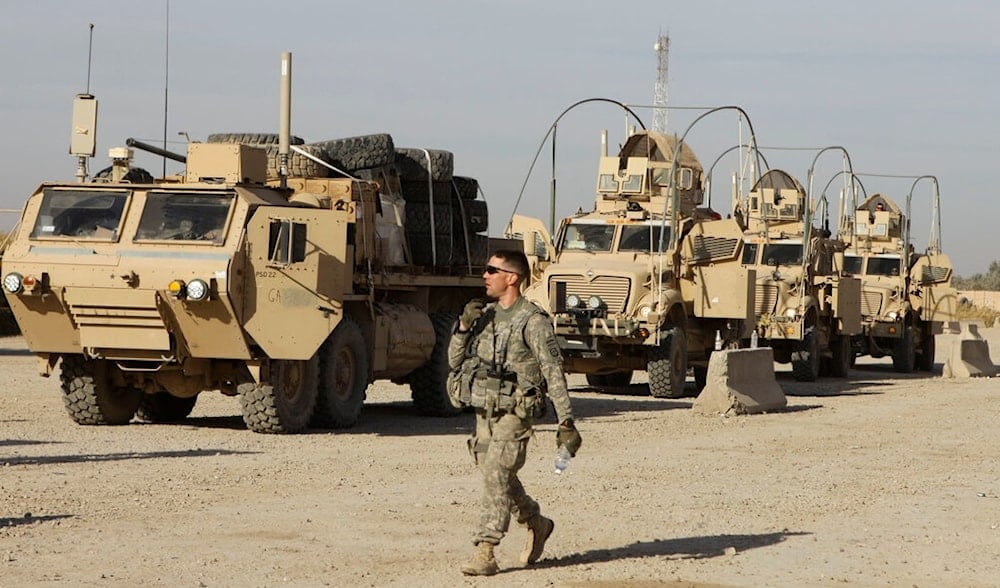US, allies allegedly begin troop reduction in Iraq as per agreement
The US and the international coalition are reducing troop levels in Iraq, shifting from combat operations against ISIS to a long-term security partnership with Baghdad.
-

A US Army soldier with 1st Brigade, 1st Cavalry Division walks past military armored vehicles that are ready to be shipped out of Iraq at Contingency Operating Site Kalsu, Iraq, Dec. 5, 2011 (AP)
The Pentagon announced Wednesday that US and allied forces are allegedly reducing their presence in Iraq, formally beginning the drawdown of a mission that has lasted more than a decade.
The move follows a joint agreement between Washington and Baghdad to end the coalition’s military role against ISIS by September 2025.
“This reduction reflects our combined success in fighting ISIS and marks an effort to transition to a lasting US-Iraq security partnership,” Pentagon spokesman Sean Parnell said in a statement. “The US government will continue close coordination with the government of Iraq and coalition members to ensure a responsible transition.”
US troops halved
A senior defense official, speaking on condition of anonymity, said the total number of foreign troops in Iraq would fall to fewer than 2,000, with most of them stationed in Arbil, the capital of Iraq’s autonomous Kurdistan region.
“US troops simply are not necessary to be in federal Iraq to conduct a counter-ISIS mission. Iraq is eminently capable of doing it themselves,” the official said, adding that the remaining forces in Arbil would focus largely on supporting operations in neighboring Syria.
Under the US-Iraq agreement, international troops will be allowed to support anti-ISIS operations in Syria from the Kurdistan region until September 2026. The Pentagon previously announced in April that it would roughly halve its deployment in Syria, and current troop levels there now stand at “more than 900,” down from around 2,000.
An end to a decade of foreign interference
In 2014, ISIS captured Mosul and large portions of Iraqi territory, prompting Baghdad to seek international assistance. The US rapidly mobilized a coalition of more than 80 nations under Operation Inherent Resolve, aiming to provide military support through targeted airstrikes, specialized training programs, and comprehensive logistical assistance for Iraqi security forces.
Though Nouri al-Maliki had requested US and UN assistance, the coalition's operations proceeded without a new UN mandate, prompting legal debates and fueling Iraqi perceptions of the mission as an extension of American occupation rather than legitimate counterterrorism.
The coalition was the center of much controversy; coalition airstrikes that aimed to help the recapture of cities like Mosul also caused many civilian casualties, reaching thousands, according to NGOs like Amnesty International. Critics have argued that the coalition underreported such casualties.
Bombing campaigns devastated infrastructure, leveling Mosul's Old City and fueling criticism that anti-ISIS operations sometimes punished civilians collectively.
Despite Iraq's December 2017 declaration of victory over ISIS, coalition forces maintained an advisory and counterterrorism presence that became increasingly controversial within Iraqi politics.
In 2021, Washington and Baghdad reached an agreement to transition the US military role from combat operations to training and advisory missions, though thousands of coalition troops continued to be deployed across Iraqi bases.
Read more: Iraq affirms sovereignty amid US attack on security pact with Iran

 3 Min Read
3 Min Read










